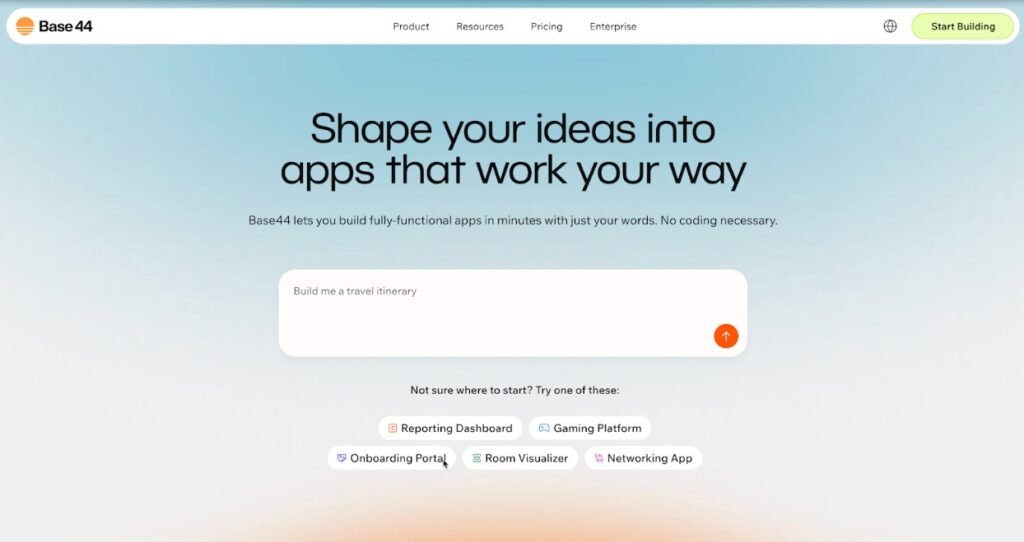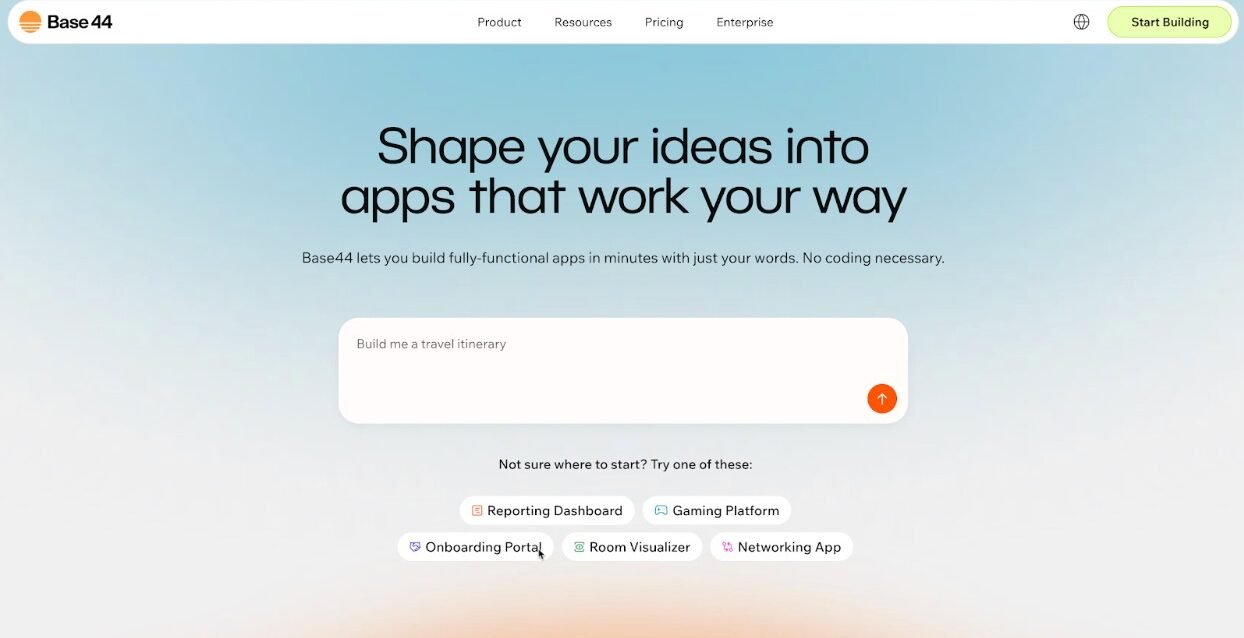Think about how people find new apps. They scroll through the app store, right? For a long time, that was the whole game. But that’s all changing. Soon, instead of searching, people will just ask their AI assistants, “What’s the best app for learning guitar?” or “Find me an app to plan my trip to Japan.” This is the new world of app discovery, and getting your app recommended is the new goal.
C'est ici que Generative Engine Optimization, or GEO, comes into play. It’s a new strategy that goes beyond traditional App Store Optimization (ASO). It’s about designing and marketing your app in a way that makes AI assistants want to suggest it. By thinking about GEO from the very beginning, you can build an app that’s set up for success from day one. Let’s explore how you can get your app ready for this exciting new chapter.
Apps Winning with GEO
Some of the most successful apps today are leveraging Generative Engine Optimization to achieve remarkable visibility and user engagement. By aligning their design and functionality with the preferences of AI-driven recommendation engines, these apps are consistently getting prioritized in search results and suggestions. This approach has enabled them to expand their user base while maintaining relevance in a rapidly evolving market. The key lies in creating a seamless, intuitive experience that resonates with both users and AI systems.
Spotlight on Development Partners Like Base44
Innovative development partners, such as Base44, are leading the charge in implementing GEO strategies. Known for their expertise as no code ai app builder, allow building cutting-edge apps. Base44 collaborates closely with clients to ensure every project meets the criteria for AI-driven success. From refining app interfaces to crafting algorithms that enhance discoverability, their forward-thinking approach is a game-changer. Partnering with experts like Base44 gives app creators a significant advantage in staying ahead of industry trends and maximizing their impact.

How Users Discover Apps in 2026
Fast forward to 2026. Your phone’s AI assistant is your go-to for almost everything. Instead of browsing endless lists in an app store, you have a conversation. You tell your assistant what you need, and it gives you a direct recommendation. This isn’t science fiction; it’s the direction we’re heading with tools like Google’s AI-powered search and ChatGPT.
For app developers, this is a huge shift. Discovery is moving from a visual, search-based environment (the app store) to a conversational, trust-based one (the AI). The AI’s job is to give the user the single best answer. Your job is to convince the AI that your app est that answer. This means your app doesn’t just need to be good; it needs to be recognized as an authority in its category.
Why Traditional ASO Alone Won’t Cut It
App Store Optimization (ASO) has been the rulebook for getting noticed. It involves optimizing your app’s name, description, keywords, and visuals to rank higher in app store search results. ASO is still important, it’s your app’s home base. But it’s no longer the only game in town.
ASO is designed for a human who is browsing. GEO, on the other hand, is designed for an AI that is analyzing. The AI looks for different signals than a person scrolling through screenshots. It’s digging for hard facts, expert validation, and proof that your app is a credible solution to a user’s problem. Relying only on ASO is like preparing for a piano recital when you’re about to play a guitar solo. You need the right strategy for the right performance.
GEO-First App Ideation: Building What AI Wants
The best way to win at GEO is to build it into your app’s DNA from the very start. When you’re brainstorming your next big app idea, don’t just ask, “What would users download?” Also ask, “What problem can my app solve so well that an AI would have to recommend it?”
Think about creating an app that is an authority.
- Solve a Specific Problem: Instead of a generic “fitness app,” what about an “app for post-run stretching routines for marathon runners”? Niche apps that solve a specific problem with deep expertise are easier for AI to categorize and recommend.
- Integrate Verifiable Data: Can your app include unique data or information? A travel app could have original guides to hidden gems, or a finance app could offer unique calculators based on proprietary formulas. AI engines love factual, citable information.
- Build for a Clear Purpose: Your app’s core function should be easy to explain. If you can describe what your app does in one clear sentence, an AI can understand its value.
By thinking about GEO during the ideation phase, you’re not just building an app; you’re building a solution that AI assistants will see as the definitive answer for a specific need.
GEO-Optimized App Development
Your GEO strategy should also guide how you build your app. It’s about creating features and documentation that send strong signals of authority and trustworthiness.
- Create In-App Resources: Pack your app with helpful content. A cooking app could have a built-in library of articles on knife skills. A language-learning app could feature detailed grammar guides. This content makes your app a valuable resource, not just a tool.
- Develop Clear Documentation: Create a public-facing website with detailed guides, FAQs, and tutorials for your app. This content lives on the open web, where AI engines can crawl and index it. When they see a wealth of helpful information associated with your app, it boosts your app’s credibility.
- Focus on Factual Accuracy: If your app provides information, whether it’s nutritional data, historical facts, or market statistics, make sure it’s accurate and, if possible, references its sources. This makes your app a reliable source that AI can trust.
Marketing Your App to AI Engines
Once your app is built, you need to market it not just to users, but to the AI engines that will recommend it. This involves a content strategy that positions your app as an authority.
- Build a Content Hub: Your app’s website is your most powerful GEO tool. Use it to publish blog posts, case studies, and articles related to the problem your app solves. If you have a meditation app, write about the science of mindfulness. This builds topical authority.
- Earn Authoritative Mentions: Get your app mentioned on respected industry blogs, news sites, and podcasts. When an expert in your field talks about your app, it sends a powerful signal to AI that your app is legitimate. These mentions are like backlinks for the AI world.
- Become “Citation-Worthy”: Publish original research, data, or white papers related to your app’s niche. When other websites and publications cite your research, it solidifies your position as a thought leader and makes your app a go-to resource for AI.
The Integrated Approach: ASO + SEO + GEO
The future of app success isn’t about choosing one strategy over another. It’s about making them work together.
- ASO is your storefront: It convinces users to download your app once they find it. Keep your app store page polished with great visuals and clear descriptions.
- SEO is your public relations: It drives traffic to your app’s website, where you build authority with great content. This content also serves as your GEO foundation.
- GEO is your expert endorsement: It convinces AI assistants that your app is the best solution for a specific need, leading to direct recommendations.
When you create a great blog post for RÉFÉRENCEMENT, you’re also creating an asset that AI can use for GEO. When you update your app’s features, you can write about it on your blog (SEO) and update your app store description (ASO). It all works together to build a powerful engine for discovery.
By embracing this integrated approach, you can create an app that not only shines in the app store but also becomes the trusted recommendation for the next generation of search.





